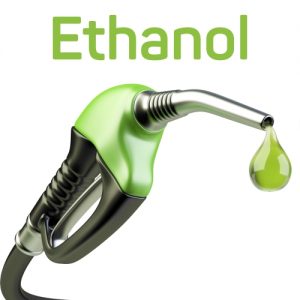
Oil embargoes, increasing oil costs, and a growing reliance on imported oil sparked renewed interest in ethanol as a transportation fuel in the 1970s, spurring the development of alternative fuels. Because of tax breaks and environmental laws requiring cleaner-burning fuels, ethanol usage and production have risen significantly since that time.
Start a Business in Ethanol Industry, Click Here
The fuel may also be produced from plants such as grasses and trees as well as agricultural and forestry waste products such as maize cobs and stocks, rice straw, sawdust, and wood chips. There are many methods for producing ethanol from these feedstocks.
Some individuals, on the other hand, are concerned about the use of ethanol as a transportation fuel. As an example, there have been concerns raised regarding the amount of energy and land needed to cultivate ethanol feedstock crops in order to produce the fuel. Despite these reservations, ethanol-based gasoline is still a viable alternative to fossil fuels in many situations!
Related Project- Production of ETHANOL from Broken Rice, Maize & Wheat
What is the process through which ethanol is produced?
Manufacturing ethanol from starch or sugar-based crops is one of the oldest examples of man's forays into high-value agricultural processing and is still going strong today.
Both Henry Ford and Alexander Graham Bell were pioneers in their recognition of the possibility of converting the abundant sugars present in plants into clean-burning, renewable alcohol fuels that could be produced quickly and cheaply.
Start a Business in India, Click Here
While the idea remains the same now as it did then, the ethanol business has gone a long way from those early days of ethanol production. Modern renewable fuel refineries use cutting-edge technology to convert grains, beverage and food waste, cellulosic biomass, and other items, together referred to as feedstocks, into high-efficiency ethanol.
More than 90% of the grain ethanol generated today is produced via the dry milling process, with the remaining 10% produced by wet milling processes. The primary distinction between the two is in the manner in which the grain is treated first.
Related Books- Alcohol and Alcohol based Industries, Alcoholic and Non Alcoholic Beverages, Fruit Juices, Whisky, Beer, Rum, Wine and Sugarcane bye products
Process for Producing Ethanol in a Dry Mill
Dry milling is a process in which the whole grain kernel is first crushed into "meal," then slurried with water to create a "mash." In order to convert starch to sugar, enzymes are added to the mash. The mash is boiled, then allowed to cool before being transferred to fermenting vessels. When yeast is introduced, the process of converting sugar to alcohol starts.
Following fermentation, the resultant "beer" is removed from the leftover "stillage," which is then bottled. The ethanol is then distilled and dehydrated before being mixed with a denaturant (such as gasoline) to make it unusable as a beverage. After that, it is ready for shipping. The stillage is subjected to centrifugation, which separates the solids from the solubles in the stillage. As a result of these co-products, distillers grains and maize distillers oil are produced. Visit our co-products website for more information on co-products and current manufacturing.
Start a Business in Asia, Click Here
Process of Making Ethanol in a Wet Mill
The grain is initially split into its fundamental components in wet milling, which is accomplished via soaking. Following steeping, the slurry is processed through grinders in order to separate the corn germ from the rest of the slurry. The residual fibre, gluten, and starch constituents are separated even more thoroughly.
The gluten component (protein) is filtered and dried to be used in the production of feed for animals. Utilizing a fermentation process similar to that used in the dry mill process, the leftover starch may subsequently be converted to ethanol.
Related Video- Lucrative Business of Dual Feed Distillery (Ethanol as Bio-Fuel)
Production of Cellulosic Materials in Ethanol
A more complex procedure than utilising starch-based crops is required for producing ethanol from cellulosic feedstocks, which include grass, wood, and agricultural leftovers. The production of cellulosic ethanol may be accomplished via two main pathways: biochemical and thermochemical. It is necessary to perform a pretreatment in order to liberate hemicellulose sugars, which is then followed by hydrolysis in order to break down the cellulose into sugars.
Ethanol is produced via the fermentation of sugars, and lignin is recovered and converted into energy to fuel the fermentation process. Syngas is produced via the thermochemical conversion process, which includes adding heat and chemicals to a biomass feedstock in order to generate carbon monoxide and hydrogen gas. In this process, syngas is combined with a catalyst and transformed into ethanol as well as other liquid byproducts.
Best Industry for Doing Business, Click Here
“Ethanol Manufacturing Business” is a project report by NPCS. Each detailed project reports cover all the aspects of business, from analyzing the market, confirming availability of various necessities such as plant & machinery, raw materials to forecasting the financial requirements. The scope of the report includes assessing market potential, negotiating with collaborators, investment decision making, corporate diversification planning etc. in a very planned manner by formulating detailed manufacturing techniques and forecasting financial aspects by estimating the cost of raw material, formulating the cash flow statement, projecting the balance sheet etc. Many of the engineers, project consultant & industrial consultancy firms in India and worldwide use our project reports as one of the input in doing their analysis.
Start a Business in Africa, Click Here
Start a Business in Middle East, Click Here
Start a Business in Potential Countries for Doing Business, Click Here
Business Ideas with Low, Medium & High Investment, Click Here
Looking for Most Demandable Business Ideas for Startups, Click Here
Pall_20Art21
#NPCS #EthanolManufacturingIndustry #EthanolManufacturing #EthanolProduction #Ethanol